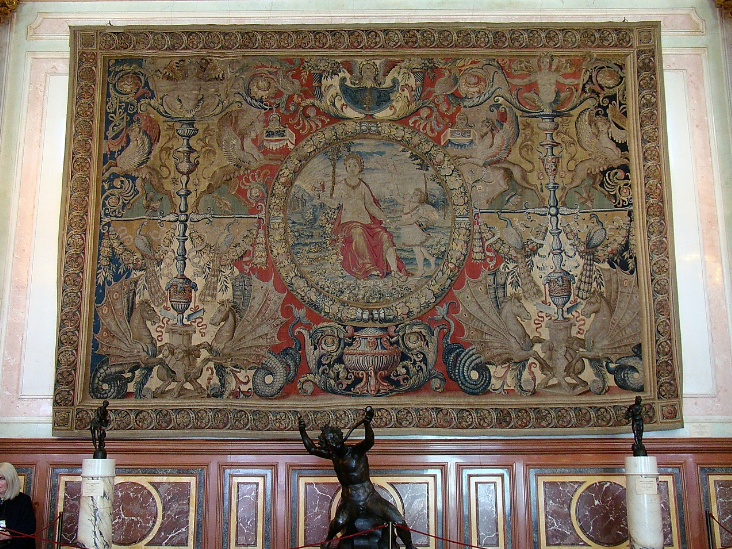Cultural festivals are a vibrant tapestry woven with the threads of tradition, celebration, and diversity. These remarkable events, celebrated across the globe, provide a glimpse into the unique customs, beliefs, and artistry of different cultures. From the lively colors of India’s Holi festival to the mesmerizing rhythms of Brazil’s Carnival, cultural festivals transcend geographical boundaries, uniting people in a shared experience of joy and heritage.
Cultural Diversity in Festivals

Cultural festivals serve as living museums of traditions, offering a captivating display of cultural diversity. Whether it’s the lantern festivals in China, the Day of the Dead in Mexico, or the Oktoberfest in Germany, each festival is a testament to the customs passed down through generations. They provide an opportunity for people from various backgrounds to learn and appreciate the intricacies of different cultures, fostering cross-cultural understanding and respect.
Traditional vs. Modern Celebrations
The dichotomy between tradition and modernity is a recurring theme in cultural festivals. While traditional rituals and practices remain at the heart of these celebrations, many festivals have evolved to incorporate modern elements. This delicate balance between preserving heritage and embracing change ensures that cultural festivals stay relevant and continue to captivate audiences worldwide.
Iconic Cultural Festivals

Around the world, certain cultural festivals have gained international acclaim. Rio de Janeiro’s Carnival, with its samba parades and elaborate costumes, is a dazzling spectacle. Diwali, the festival of lights in India, illuminates homes and hearts. Venice Carnival, with its intricate masks and Venetian flair, enchants visitors. These festivals not only attract tourists but also proudly represent their respective cultures on the global stage.
Cultural Festivals and Tourism
Cultural festivals are not only a source of cultural pride but also significant drivers of tourism. They bring visitors from far and wide, stimulating local economies and supporting businesses. Hotels, restaurants, and artisans all benefit from the influx of festival-goers, making these events crucial to the livelihood of many communities.
Preservation of Heritage
One of the most vital roles of cultural festivals is the preservation of cultural heritage. Through storytelling, music, dance, and art, these festivals ensure that traditional practices endure for future generations. They act as a bridge between the past and the present, reminding us of our roots and the importance of passing on our traditions.
The Role of Technology

In the digital age, technology has left its mark on cultural festivals. Livestreams and virtual tours have made it possible for people worldwide to participate in these events. While these technological advancements enhance accessibility, they also raise questions about the authenticity of the festival experience.
Challenges Faced by Cultural Festivals
Despite their significance, cultural festivals face challenges such as commercialization and cultural appropriation. Balancing the need for financial sustainability with the preservation of authenticity can be a delicate task. However, many festivals have adapted by incorporating educational elements to raise awareness about their cultural significance.
Festivals as a Bridge between Communities
Cultural festivals serve as powerful bridges between different communities. They facilitate cultural exchange and encourage dialogue among people from diverse backgrounds. Festivals like the Notting Hill Carnival in London and the Albuquerque International Balloon Fiesta promote unity and solidarity through celebration.
Environmental Impact
In an era of environmental consciousness, the environmental impact of cultural festivals cannot be ignored. Many festivals are adopting sustainable practices, such as reducing waste and promoting eco-friendly transportation options, to minimize their carbon footprint.
The Emotional Experience
Attending a cultural festival is often an emotional journey. The sights, sounds, and flavors can evoke a range of feelings, from nostalgia to pure joy. These emotional connections foster a sense of belonging and cultural appreciation.
Cultural Festivals and Social Change
Cultural festivals are not merely about celebration; they can also be agents of social change. Some festivals use their platform to raise awareness about social issues or advocate for positive change. For example, Pride parades celebrate LGBTQ+ rights, while Indigenous festivals promote cultural preservation and rights.
Future of Cultural Festivals
As the world continues to evolve, cultural festivals must adapt to changing circumstances. Virtual festivals and innovative approaches to engagement may become more prevalent. However, the core essence of these festivals, which lies in celebrating culture and tradition, will remain steadfast.
Conclusion
Cultural festivals are timeless celebrations that showcase the beauty of human diversity. They bridge gaps, celebrate heritage, and create lasting memories. In a world that sometimes feels divided, these festivals remind us of our shared humanity and the rich tapestry of cultures that make our planet a colorful and fascinating place.



